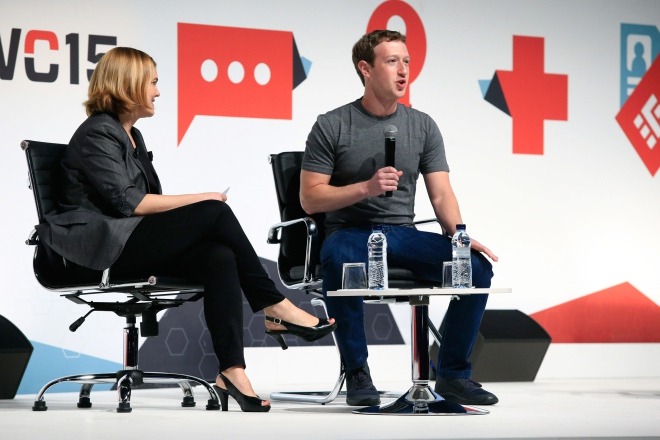Mark Zuckerberg argued during his keynote speech at the Mobile World Congress that offering free internet could allow operators to expand faster in emerging markets. During a Q&A session with Wired Magazine’s Jessi Hempel, the founder and CEO made the case for the internet.org project.
Internet.org, a collaborative project headed by Facebook, together with several operators and other partners, has the ultimate goal of connecting everyone in the world to the internet.
In order to make that happen, Zuckerberg aims to raise awareness of the internet. One way, he argued, would be for mobile operators to offer some services for free. This would allow new users to get a “taste” of the internet, and thereafter be more willing to pay for mobile data and additional services.
The internet.org app has been introduced in six countries following its launch in Zambia during 2014. It offers a number of basic services, including Facebook, free of charge. Zuckerberg argued there would be no risk for cannibalisation of revenue for operator partners, and that customers would not switch from paid data to free services. It would rather act as a “gateway” product to those who currently have no experience or financial resources at all to access the internet.
Mario Zanotti, senior vice president of operations at Millicom, one of the internet.org partners, explained that first results have been encouraging. Joining Zuckerberg on stage, Zanotti said there has been a 30 per cent increase in data users following the introduction of free data packages in Paraguay, which in turn led to more paid data users. Also in Tanzania, results have been encouraging with a 10 per cent increase in smartphone sales following the introduction of internet.org.
Christian De Faria, CEO at Airtel Africa also explained that first results are positive and without any negative impact or cannibalization.
Jon Fredrik Baksaas, CEO at Telenor Group was arguably the most skeptical in the panel of speakers. He argued that any initial positive result would have to be sustainable in the long run.
O.Apelblat
The Brussels Times

